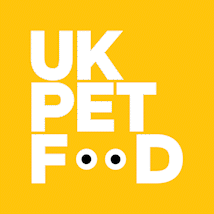Chinchilla care & nutrition
Caring for pet Chinchillas
Feeding your pet chinchilla a proper and nutritionally balanced diet is essential for their well-being and longevity.
Chinchillas are clean, quiet and lively rodents, originally from the Andes Mountains in South America where they live in colonies in their native habitats. They have been kept as pets for a relatively short time and experts are still learning about how best to care for them.
With plenty of gentle handling, chinchillas make wonderful and inquisitive pets that typically live for 10-20 years.
Chinchilla nutrition & diet
Chinchillas are herbivorous animals, which means they only eat plant-based food. However, they have specific dietary requirements that must be met to ensure their health and happiness.
- Like most other rodents, chinchillas have a complicated and sensitive digestive system, so any vegetables need to be introduced gradually too much green food can cause upsets.
- As with rabbits & guinea pigs, chinchillas perform a digestive process called caecotrophy to extract as much goodness as possible from their food. Simply put – they eat their droppings (caecotrophs), allowing food to be reingested.
- And due to their continually growing teeth, chinchillas need the correct diet to wear down their teeth sufficiently to avoid painful dental conditions.
What to feed your pet chinchilla
There are a number of nutritionally balanced diets for chinchillas on the market, but here are some nutrition tips to bear in mind:
The importance of grasses & hay for a chinchilla's digestion
Chinchillas need fibre-rich diets based on grasses and hays in order for their digestive systems to function properly.
Like many other small mammals, the foundation of a chinchilla's diet is good-quality hay which should always be available to them, as it is key in aiding digestion.
Chinchillas also need specialised chinchilla food to provide the necessary nutrients.
There are a number of nutritionally balanced diets for chinchillas on the market, such as pellets. Pellets provide essential nutrients that may not be fully obtained from hay alone.
However, they should not constitute more than a quarter of a chinchilla's daily food intake.
Small amounts of fresh vegetables such as fresh herb mixes, fibrous leafy greens (kale, radicchio), dandelion leaves
Chinchillas benefit from small amounts of fresh vegetables in their diets, however, vegetables should be introduced gradually to prevent digestive upsets.
Plenty of hay, twigs, roots & stems to chew on
Unlimited supply of fresh drinking water
Always provide fresh, clean water. Insufficient water intake can lead to dehydration and various health complications.
Chinchilla food manufacturers have experts available to advise you on what you should buy for your chinchilla and how much and how many times per day to feed them, so contact them directly for further advice on specific products.

Dangerous foods for chinchillas
There are a number of foods that are poisonous to chinchillas, so always double-check before you feed them.
These foods include Asparagus, Avocado, Cabbage, Corn, Lettuce, Broccoli, Rhubarb, Rhubarb leaves and Peas. Other dangerous foods for chinchillas are Bananas, Sunflower Seeds and Peanuts.
This list is not exhaustive, and it is best to avoid it if in doubt as to whether something is safe to feed your pet
Can I give my chinchilla treats?
Your chinchilla may like an occasional treat, such as a small piece of fruit – but only on occasion, due to their high sugar content.
Chinchillas can suffer from obesity if fed incorrectly, leading to many other health problems. The usual culprits are too many treats or too much dry food containing excess sugar.
How can I tell if my chinchilla is eating correctly?

You will notice that your chinchilla tends to feed early in the morning or late in the evening. A sign of a healthy chinchilla is eating daily and passing plenty of dry droppings. Always keep an eye on how much your chinchilla eats and drinks. If you notice that your pet's habits change, contact your vet.
It is not advisable to make any sudden changes to your chinchilla's diet as this may make them ill. You should always introduce new diets gradually.
If you have any worries about your chinchilla's health, consult a vet. Regular veterinary check-ups can help ensure your chinchilla's nutritional needs are met and any potential health issues are addressed.
Bottle refilling & cleaning
Fresh, clean water must always be available for your chinchilla. We recommend purchasing a drinking bottle designed for chinchillas and ensuring the bottle is always clean. You should also make sure you check water levels frequently and change the water daily.
Providing an interesting and stimulating living space
Otherwise known as Behavioural Enrichment, the way you feed your chinchilla and the environment in which they live is essential to your pet's wellbeing by helping to prevent boredom and stress.

